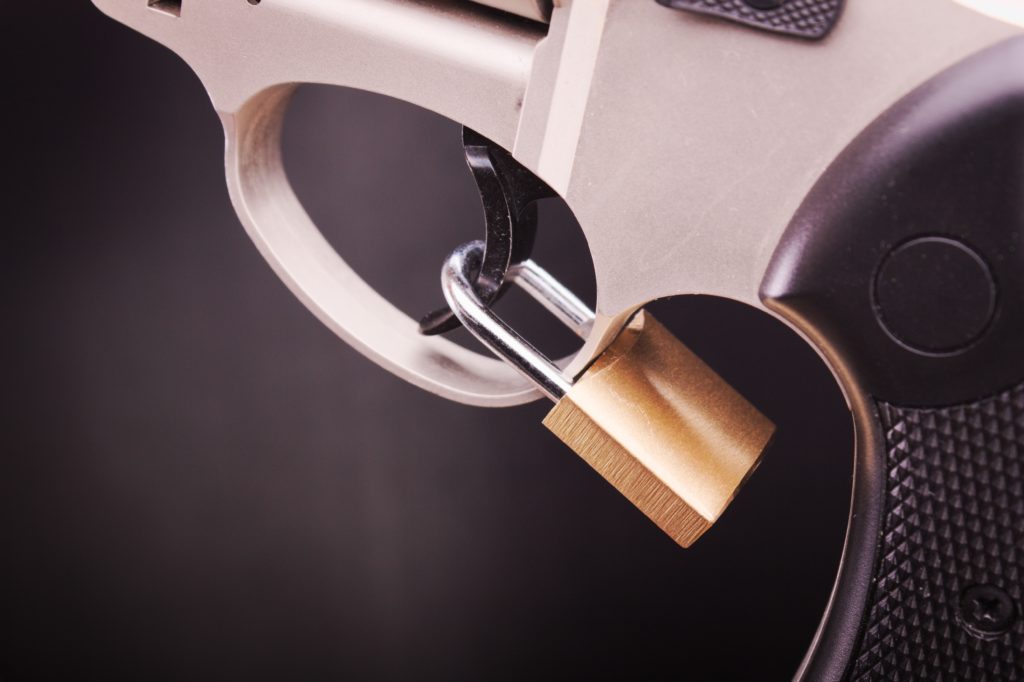As Marjory Stoneman Douglas High School students continue to push for gun control reform and the national debate rages on, one population of parents is facing an extra hurdle in gun laws – foster parents. Foster parents regularly help children deal with the same issues that plagued the young, traumatized Nikolas Cruz, and as the threat of increased gun control regulations grows, they are fighting for their right to own, carry and operate firearms while caring for foster children.

First, it’s important to understand how we got here. On February 14th, 2018, Nikolas Cruz committed what is one of the most discussed mass shootings in American history. His story, however, began much earlier than that – his biological mother, a drug addict who was incarcerated at the time of his birth, gave him up for adoption to Lynda Cruz when he was three days old . After turning 10, he was diagnosed with autism and later, attention-deficit/hyperactivity disorder (ADHD) and depression.
Although initially a good student, Nikolas began displaying signs of emotional and mental trauma, including punching holes in walls and striking his mother in the face, by the time he reached middle school. In 2013, psychiatrists recommended a mandatory admission to a residential treatment facility for Cruz, and by 2014 he had been transferred to a school for children with emotional and learning disabilities. By September of 2016, the Florida Department of Children and Families began investigating an incident of self-harm that Cruz had posted to the social media platform Snapchat. In November 2017, Cruz’s adoptive mother passed away, and he went to live with James and Kimberly Snead, where they allowed him to keep three assault rifles along with BB guns and pellet guns locked in a safe in their home. Although James Snead believed he had the only key and required Cruz to ask permission before allowing him to access the safe, he was tragically wrong.
3 months later, using a spare key the Sneads were unaware of, Cruz would carry an assault rifle into Marjory Stoneman Douglas High School in Parkland, Florida and kill 17 people.
This stakes are obviously high in this hot-button issue. However, while the debate may be national, the way gun control is handled differs state by state. As each state is technically responsible for the well-being of the children in their foster care system, child welfare providers must weigh the risks of outcomes such as the Marjory Stoneman Douglas shooting or an accidental gun death against the rights of the foster parents who are putting in the actual work of raising the children.
In Arizona, a bill proposed in the state legislature would remove the state’s requirement that firearms be kept in a safety locker. One proponent of the bill, Rep. Kevin Payne (R-Glendale), said, “The state is already protecting these children just by putting them in these foster homes.” According to Payne, “Once they’ve [evaluated the parents and homes], the safety of the gun shouldn’t be paramount.”
Detractors of the bill refer to a recent report that indicates that gun deaths in the state involving children had increased almost 30% between 2015 and 2016, and that the “top contributing factors in these deaths were substance abuse and guns that were not locked away.”
The idea of keeping guns locked away is not a new one – this is one of many gun regulations in place that many states have adopted. However, some states, like Michigan, have special regulations that prevent foster parents from carrying their firearms even if they’re concealed carry permit holders.
To some, this regulation is a practical equivalent to a ban on firearms –without the ability to carry their firearm for protection, these parents feel the purpose of owning a firearm is nullified. The issue becomes even trickier when kinship care is involved. For instance, Bill Johnson’s grandfather taught him how to shoot at age 9 and gave him a shotgun at age 14. Now that Johnson, a Michigan resident, is attempting to become a kinship caregiver for his grandson, the state regulation means that he will no longer be able to carry a firearm. With a legacy of firearms use that began with his own grandfather, Johnson is being denied the opportunity to provide the same experience to his young grandson.
Adam Winkler, law professor at the University of California, Los Angeles, said, “Foster parents do have constitutional rights, and they don’t forsake those rights just because they become foster parents.”
However, Sandy Santana, executive director of the national nonprofit advocacy group Children’s Rights believes that “becoming a foster parent is not a right, it’s a privilege.” Under this view, it’s permissible to ask foster parents to give up their Second Amendment rights in order to participate in the foster care system – but it also begs the question of whether or not Bill Johnson has more of a right to raise his grandson than the state does.
In New Jersey, foster parents are allowed to have firearms and weapons (such as swords and knives) provided that they are locked securely in a steel gun vault approved by the Office of Licensing that is separate from the ammunition for those firearms (which must also be locked away). In February of 2018, the state legislature introduced several gun control bills that would allow for the seizure of firearms from individuals deemed unfit to carry them by mental health officials, require background checks for private gun sales, lower the maximum capacity of weapon magazines and require that applicants show a “justifiable need” to obtain a firearms carry permit, among others.
To see the New Jersey Department of Children and Families policy on firearms, click here.
For more information on gun laws in your state, click here or here.

Link for NJ DCF policy directs to Residential Child Care Facilities not to policy for resource parents
Thank you for pointing this out. The link has been updated.